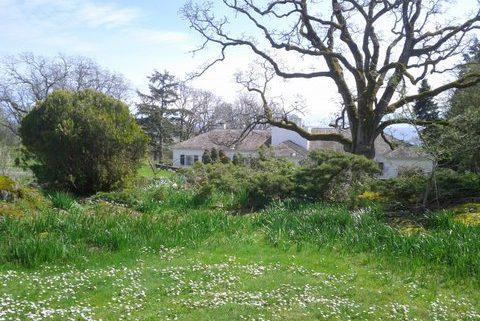It was my sincere pleasure to attend Dr. Hillary Rodrigues’ retreat this past weekend. The retreat was called “Why Not This?”, and we explored this question from a variety of angles. Hillary’s facilitation style is really quite special—he speaks from a place of deep and diverse knowledge, and the clarity and dynamism with which he speaks is powerful and illuminating. As I’ve been studying the similarities between Vedanta and Buddhist traditions, as well as Krishnamurti’s teachings, it was also refreshing and exciting to hear Hillary tie these all together in such an intelligent manner (while also pointing out some apparent differences). So, why not this? Why is this not enlightenment? Why don’t we experience this moment as being a perfect expression of the Absolute? Could it be that this, being what is—which includes everything in the present moment—is not anything less than what these mythical spiritual ideals point to? Why do so many of us seem to have such a difficult time being present? Why are we not content with this, just as it is? Personally, I understand that past conditioning gets in the way of what some might call “ being present”. The past lives in us, governing various levels of how we relate to others, the world and ourselves. As I walked down to the ocean during one of the experiential exercises that had us contemplating the question, “Why not this?”, I saw how the past was present in my mind and body, as a feeling of not being connected to my surroundings, or even to myself for that matter. Sometimes even when our minds seem relatively quiet, old stories can be bubbling beneath the surface, creating underlying tension, anxiety, or a general inability to fully relax into what is. I observed this in myself during that exercise. Later, Hillary said something that struck me, saying something along the lines of, “Maybe what is also includes the seeming disparity with what is?”. And this is the truth of the matter, isn’t it? No matter how we’re feeling, how unenlightened or enlightened, how joyful or sad, can we just be with that? Because whatever our current experience is, that’s what is! Krishnamurti often talked of the opportunity for transformation in not moving away from the fact of what is, not being swept up by the movement of the psychological self. Of course, any effort to not be swept up would also be a psychological movement rooted in and perpetuating inner division, so perhaps a simpler way of interpreting such a message might be, “relax, and meet every experience with purely observational, non-judgmental, choiceless awareness”. The thing is, just as Buddha nature is said to be our true nature, and the Self in Vedanta is said to be our true self, choiceless awareness—which connects effortlessly with what is—is also our natural state. In Buddhism, all phenomena are said to be inherently selfless, and the same can be said about choiceless awareness in regards to how we experience all phenomena. The fact is that we are naturally choicelessly aware of all our senses, including our inner sense of self and thought. It’s only because we mistake ourselves for the mentally fabricated self that we believe and seemingly experience otherwise. Getting acquainted with the space in which thoughts arise can help us to see the truth of this for ourselves; an interesting question to ask ourselves is, “Who, or what, hears thoughts?” Does that presence exercise choice, praise or condemnation? Does it make any effort to be what it is? All psychological movement, including apparent movement away or towards what is, is a form of effort. What we are though, the truth of our being in this very moment, is not something that comes about by way of effort, it simply just is. Another angle Hillary discussed was the “neti, neti” approach found in many Vedanta teachings. This is a way of negating any phenomena that arise in experience as containing any inherent self or as being absolute expressions of reality. There are some similarities here to the teachings of no-self in Buddhism, but teachings in Vedanta state that once you have swept away all the delusions rooted in wrong identification, your true Self—being the one and only Self of all selves—alone remains. From this angle, we can ask, “Why not this?” Hillary also shared many great quotes from Krishnamurti on what is, and the division and conflict created by moving away from what is to what is not. It was a very powerful retreat for me. Hillary is an amazing facilitator, and it was really nice to reconnect with some folks whom I met last year as well as a few new people. The combination of high quality facilitators and high quality participants make these retreats very special events for me. Thanks to Hillary and all the beautiful participants for making this event truly special, and to Ralph and KECC for bringing Hillary here and making these events happen.










